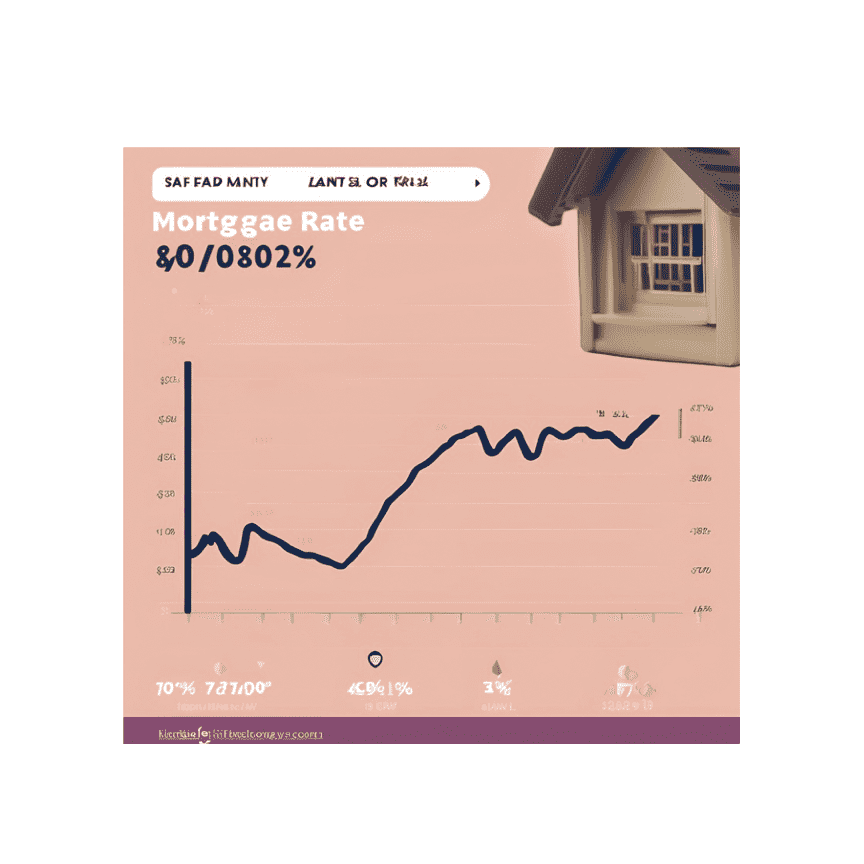Decoding Housing Market: The Mortgage Rate 'Lock-In' Effect
Decoding the impact of mortgage rates on the housing market. Learn how the 'lock-in' effect affects homeowners and market trends.
A recent report by the Federal Housing Finance Agency has brought attention to the mortgage rate "lock-in" effect and its influence on the housing market. The report revealed that approximately 1.33 million home sales were deterred as homeowners opted to retain their properties to preserve low mortgage rates. This phenomenon has contributed to a notable decline in home sales, with last year marking a sales volume close to a 30-year low.
The "lock-in" effect arises when homeowners are hesitant to sell their homes due to the prospect of relinquishing a low mortgage rate and acquiring a new mortgage at a substantially higher rate. This factor has been identified as a significant contributor to the limited number of home sales transactions in recent years. To illustrate the impact of this effect, let's consider a hypothetical scenario: a family purchased a $300,000 home in January 2021 when the average mortgage rate stood at 2.65%. Fast forward to April 2024, with rates escalating to 7%, resulting in a considerable surge in their monthly mortgage payment.
Not only have mortgage rates surged during this period, but home prices have also experienced an upward trajectory. Consequently, homeowners who secured homes or refinanced at low rates are now confronted with a financial dilemma if they were to sell and purchase a new home. The majority of mortgage holders presently enjoy rates significantly lower than the prevailing average rate, rendering it financially impractical for them to part ways with their homes.
Despite the financial ramifications, there has been a noticeable uptick in new listing activity in recent months. This trend can be ascribed to various factors beyond financial considerations. While some homeowners are compelled to sell due to estate sales or health-related reasons, the primary impetus for selling continues to be changing family circumstances such as marriage, divorce, expanding families, or retirement.
Looking forward to 2024, while the rate lock effect will persist in influencing inventory levels, demographic factors encompassing death, retirement, marriage, and family expansions will also play a pivotal role in stimulating more listings in the market. These life events may serve as catalysts for homeowners to surmount the rate lock obstacle and list their homes for sale.
While the mortgage rate lock-in effect has wielded a substantial impact on the housing market, additional factors like evolving family dynamics and demographic shifts will also shape inventory levels in the forthcoming years.
Decoding Housing Market: The Mortgage Rate \'Lock-In\' Effect
Greece Real Estate Market: Rise of Serviced Apartments
Explore the growing demand for serviced apartments in central Athens, where integrated hospitality services attract savvy investors in the Greece real estate market.
Explore the growing demand for serviced apartments in central Athens, where integrated hospitality services attract savvy investors in the Greece real estate market.
Read moreHome Prices Hit by Climate Change, J.P. Morgan Warns
J.P. Morgan analysts reveal a negative link between climate risk and home price appreciation. Explore the emerging trends and their impact.
J.P. Morgan analysts reveal a negative link between climate risk and home price appreciation. Explore the emerging trends and their impact.
Read moreRenting in Spain: Prices Finally Decline
The cost of renting in Spain trends downwards, averaging €13/m². Discover insights on this shift after years of steep increases.
The cost of renting in Spain trends downwards, averaging €13/m². Discover insights on this shift after years of steep increases.
Read moreRise of Cash Purchases Outside London: A New Trend
Explore the growing trend of cash purchases outside London and its implications for the property market and economic landscape.
Explore the growing trend of cash purchases outside London and its implications for the property market and economic landscape.
Read moreCanada Real Estate Market: Rents Drop for First Time in over 3 years
For the first time in over three years, average asking rents in Canada fell 1.2% in October, reaching $2,152, according to Rentals.ca.
For the first time in over three years, average asking rents in Canada fell 1.2% in October, reaching $2,152, according to Rentals.ca.
Read moreFewer Than 2% of Dutch Homes Sold to International Buyers
Analyze the decline in international purchases of Dutch houses, revealing key factors influencing this trend and its effects on the housing market.
Analyze the decline in international purchases of Dutch houses, revealing key factors influencing this trend and its effects on the housing market.
Read moreDonald Trump’s Victory May Boost London Property Demand
Knight Frank analyzes how Donald Trump’s election win could increase demand for prime London properties. Discover the potential market shifts.
Knight Frank analyzes how Donald Trump’s election win could increase demand for prime London properties. Discover the potential market shifts.
Read moreGerman Investors Fuel Growth in Greek Real Estate Market
Discover how German-speaking house buyers are revitalizing Greece's realty market, driving demand and investment in stunning properties.
Discover how German-speaking house buyers are revitalizing Greece\'s realty market, driving demand and investment in stunning properties.
Read moreLisbon: 11th City for Rising Luxury House Prices
Lisbon's luxury housing prices increased by 5.6%, outpacing Madrid, Seoul, and Zurich, marking it as a key player in the global real estate market.
Lisbon\'s luxury housing prices increased by 5.6%, outpacing Madrid, Seoul, and Zurich, marking it as a key player in the global real estate market.
Read more














